Member update: February 2019
Garg named endowed chair
 Neil Garg
Neil Garg
, a chemistry professor at the University of California, Los Angeles, has been selected as the inaugural endowed chair in chemistry and biochemistry.
Founded in 2017, the chair was established in part by a gift from the estate of the late UCLA professor Ken Trueblood and his wife, Jeanie Trueblood.
After joining the UCLA faculty in 2007, Garg was promoted to associate professor in 2012 and full professor in 2013. He served as vice chair for the department of chemistry and biochemistry from 2012 through 2016. His research focuses on developing novel methods for synthesizing organic molecules.
Outside the classroom, Garg has developed several educational tools, including an app called that teaches organic chemistry and which he self-published, to introduce children to organic chemistry concepts.
Moore honored for mentoring
 Kathryn J. Moore
Kathryn J. Moore
has received the 2018 Mentor of Women Award from the American Heart Association.
Sponsored by the AHA’s , the award is presented to a member of the council who has demonstrated excellence in supporting the careers of women in those three fields.
Moore is a professor of cardiology and cell biology at the New York University School of Medicine. At her lab, her research focuses on understanding the innate immune system and microRNAs in the regulation of lipoprotein metabolism and atherosclerosis.
Since 2014, Moore has served as an associate editor for the Journal of Lipid Research.
The award was presented at the Vascular Discovery: From Genes to Medicine Scientific Sessions 2018 conference, held in May.
HUPO council members elected
 Michelle Hill
Michelle Hill
 Robert Moritz
Robert Moritz
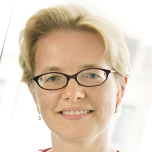 Olga Vitek
Olga Vitek
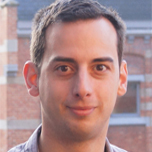 Lennart Martens
Lennart Martens
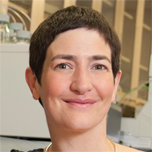 Anne-Claude Gingras
Anne-Claude Gingras
Five members of the ═╡┼─═╡┐· and ═╡┼─═╡┐· Biology are among the newest members elected to the council. They are:
- Michelle Hill of the Berghofer Medical Research Institute, Queensland, Australia
- Robert Moritz of the Institute for Systems Biology, Seattle (HUPO vice president, re-elected to the council)
- Olga Vitek of Northeastern University, Boston
- Lennart Martens of the University of Ghent-VIB, Belgium
- Anne-Claude Gingras of the Lunenfeld-Tanenbaum Research Institute, Toronto, Canada
Founded in 2001, HUPO is an international scientific organization that promotes proteomics by aiding in the development of new technologies and techniques to understand human disease better.
The HUPO Council consists of up to 48 scientists who represent the three global regions, Asia/Oceania, Europe/Africa, and North/South America.
The new members’ council terms last three years, from January 2019 through December 2021.
Bennett receives breakthrough prize
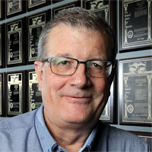 C. Frank Bennett
C. Frank Bennett
, senior vice president at Ionis Pharmaceuticals, is among the nine recipients of the 2019 .
Bennett shares the prize for developing Spinraza, an effective antisense oligonucleotide therapy for children with spinal muscular atrophy.
Bennett and the other recipients were honored at the Breakthrough Prize ceremony, known as the “Oscars of Science,” in November.
Founded in 2013 and sponsored by Sergey Brin, Priscilla Chan and Mark Zuckerberg, Ma Huateng, Yuri and Julia Milner, and Anne Wojcicki, the Breakthrough Prizes recognize achievement in life sciences, fundamental physics and mathematics.
The 2019 recipients shared a total of $22 million for their discoveries.
Liu named department chair
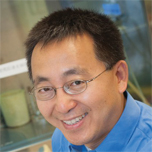 Xiaoqi Liu
Xiaoqi Liu
has been named chair of the department of toxicology and cancer biology at the University of Kentucky.
Liu is a biochemist who seeks to develop new cancer therapies by exploring the molecular mechanisms that cause cancer. His research focuses on the enzyme Pololike kinase 1, which plays a central role in many types of cancer.
Liu’s lab will be moving into the university’s new $265 million research building, which opened in 2018.
Liu was previously a professor of biochemistry at Purdue University. He also served as the leader of the Cell Identity and Signaling Program, a research group at Purdue focusing on basic cancer research.
In memoriam: John Vournakis
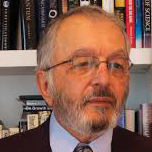 John Vournakis
John Vournakis
The ═╡┼─═╡┐· and ═╡┼─═╡┐· Biology recently learned that biochemist and biotech executive passed away Jan. 17, 2018. He was 78.
Vournakis was born Dec. 1, 1939, in Cambridge, Ohio, to Nicholas John and Pota Vournakis. He received his B.S. at Albion College in 1961 and his Ph.D. in physical biochemistry in 1968 from Cornell University.
After obtaining his Ph.D, he was a research fellow first at the Massachusetts Institute of Technology and later at Harvard.
His first tenured position was in 1973 at Syracuse University, where he served on the faculty for 12 years as a professor of biology. He later joined Dartmouth College as a professor in 1985.
Vournakis also was involved in several biotechnology companies. He was vice president for startup companies Verax and Genmap. He additionally co-founded Marine Polymer Technologies and Admune Therapeutics, which developed therapeutic drugs to treat cancer.
He is survived by his wife, Karen, and his son, Christopher.
Enjoy reading ASBMB Today?
Become a member to receive the print edition four times a year and the digital edition monthly.
Learn moreGet the latest from ASBMB Today
Enter your email address, and weтАЩll send you a weekly email with recent articles, interviews and more.
Latest in People
People highlights or most popular articles

Meet Robert Helsley
The Journal of Lipid Research junior associate editor studies chronic liver disease and was the first in his family to attend college.

Exploring lifeтАЩs blueprint: Gene expression in development and evolution
Meet Julia Zeitlinger and David Arnosti тАФ two co-chairs of the ASBMBтАЩs 2025 meeting on gene expression, to be held June 26-29, in Kansas City, Missouri.

ASBMB names 2025 fellows
═╡┼─═╡┐· and ═╡┼─═╡┐· Biology honors 24 members for their service to the society and accomplishments in research, education, mentorship, diversity and inclusion and advocacy.

When Batman meets Poison Ivy
Jessica Desamero had learned to love science communication by the time she was challenged to explain the role of DNA secondary structure in halting cancer cell growth to an 8th-grade level audience.

The monopoly defined: Who holds the power of science communication?
тАЬAt the official competition, out of 12 presenters, only two were from R2 institutions, and the other 10 were from R1 institutions. And just two had distinguishable non-American accents.тАЭ

In memoriam: Donald A. Bryant
He was a professor emeritus at Penn State University who discovered how cyanobacteria adapt to far-red light and was a member of the ═╡┼─═╡┐· and ═╡┼─═╡┐· Biology for over 35 years.

